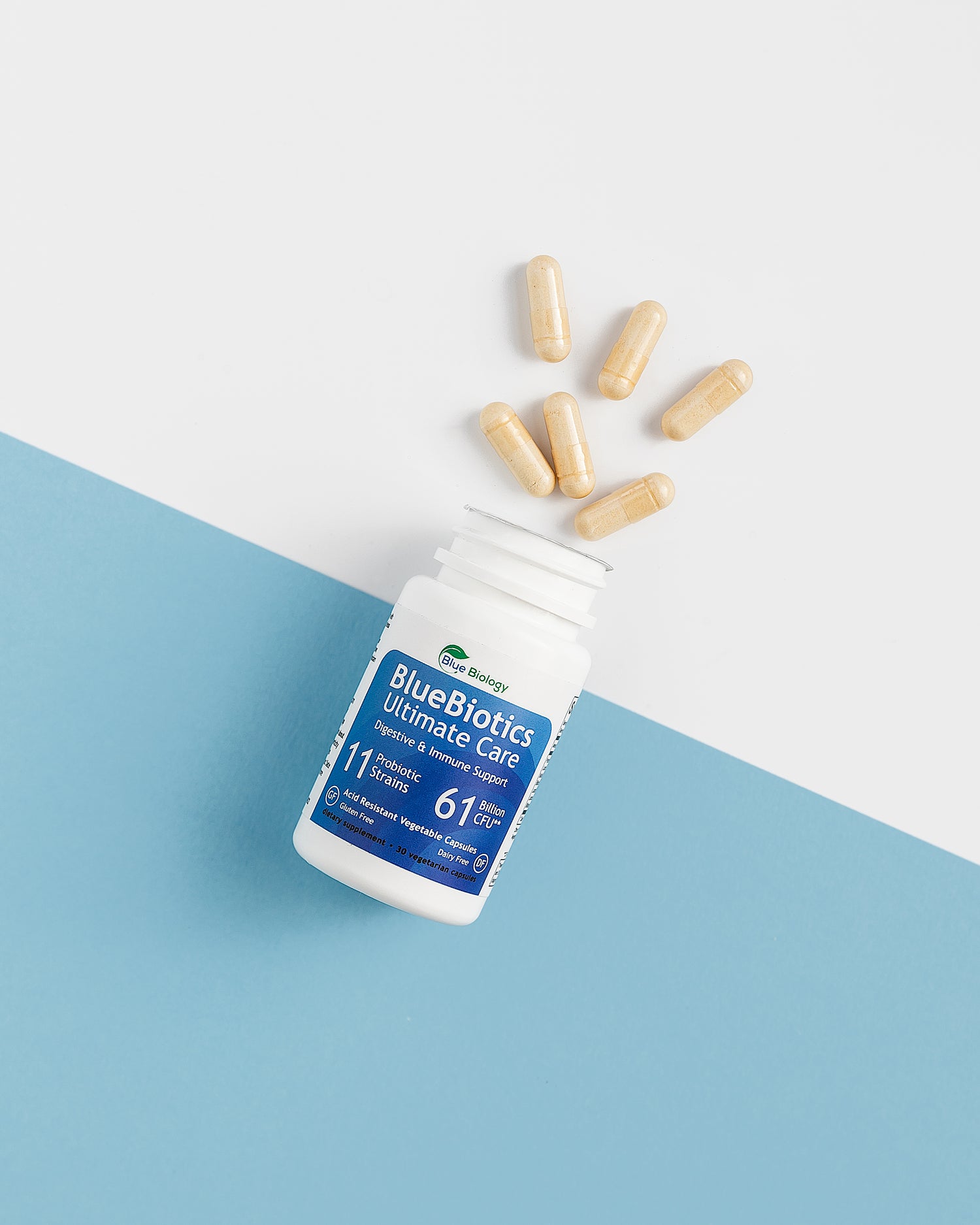Probiotics & Dental Health
Share
One surprising thing that few people know about probiotics is that they may benefit other parts of your body as well as your GI (gastrointestinal) tract.
One of these you may not have even thought of. It’s a little-thought-of but very important part of our overall health and well being.
What is it? Dental health. It’s true
To understand how probiotics affect dental health, we have to look more closely at the process of tooth decay.
It’s largely associated with a certain sugar-loving bacteria, mutans streptococci. These are the bacteria that are responsible for excreting lactic acid and breaking down that first line of defense -- your tooth enamel.
Once the strep mutans get through this stage, other bacteria take over and settles into the new cavity in your tooth.
These cavities become breeding grounds for more and more bacteria, leading to larger and larger holes.
Poor dental health can lead to secondary health problems. Some are mild, like gingivitis or poor nutrition. Some, however, can be very serious, such as systemic infection, endocarditis (infection of the lining of the heart), and pregnancy complications.
Of course, that’s why we brush and floss -- to banish all the little baddies and keep our teeth and gums healthy and clean. Experts recommend that you brush your teeth 2 to 3 times a day. The bacteria that sticks to our teeth and creates a biofilm that deflects anything that tries to penetrate or remove it can be stopped with brushing and flossing.
But did you know there might be even more that you can do to keep your mouth cavity-free?
Multiple studies have shown that introducing good bacteria into the colony that already inhabits your mouth can reduce your risk of dangerous cavities.
Remember strep mutans? The bacteria responsible for starting the cavity process in the first place?
Probiotics have a creative way of disrupting the mutans streptococci lifestyle.
The probiotics used to fight tooth decay mimic the lifestyle of mutans streptococci, but don’t excrete acid that will tear apart the teeth. Two strains of lactobacillus actually excrete a bleach-like substance that will kill the strep mutans!
In addition, they may bind to the teeth, which doesn’t allow room for the dangerous bacteria to create its biofilm. It’s essentially competing for resources, and (hopefully) winning.
These probiotics can also help by producing antimicrobials and enzymes that destroy the bad bacteria.
On top of that, they’ve also been shown to reduce inflammation in the mouth, which can help damaged teeth and gums to heal.
Helping to prevent cavities is just one of the ways we are beginning to see a connection between probiotics and oral health.
In addition, experts are also looking into the connection between bacteria and bad breath (halitosis), and how probiotics can be used to combat the smelly affliction.
That’s not all. Studies have also been done exploring the relationship between probiotic use and oral candida (bad yeast) colonies.
While we don’t recommend you ditch the toothbrush and go au naturel if you’re struggling with oral health, adding a probiotic to your daily health routine could be just the magic you’ve been looking for.
Most experts agree that this research is still in its beginning phases; there’s still lots to learn when it comes to probiotics and oral health.
One thing is certain, however, there are many benefits of probiotics left to uncover. We’re all excited to see what the future holds.
Email: support@bluebiology.com
Sources:
- https://www.ncbi.nlm.nih.gov/pubmed/11799281
- https://www.ncbi.nlm.nih.gov/pmc/articles/PMC4800643/
- https://www.cda-adc.ca/jcda/vol-75/issue-8/585.pdf
- https://www.drstevenlin.com/oral-probiotics-benefits-can-they-prevent-tooth-decay/
